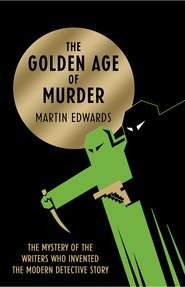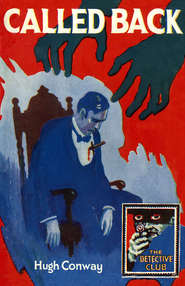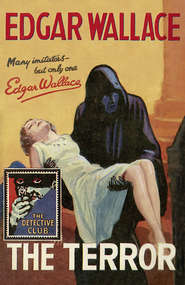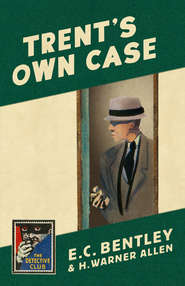По всем вопросам обращайтесь на: info@litportal.ru
(©) 2003-2024.
✖
A Voice Like Velvet
Автор
Год написания книги
2019
Настройки чтения
Размер шрифта
Высота строк
Поля
‘Enough for chocolates? I hate half doing things.’
‘Look,’ he faltered, ‘I’m afraid I can’t come tonight. Somebody’s coming to dinner.’
Her brow darkened.
‘Who? That Mr Edwards?… That’s fine, leave them together, they’re madly in love with each other, didn’t you know that? Tell Miss Wisdon you want to go for a long walk.’
‘It isn’t so easy as that!’
‘You dirty little squit!’
‘I’d like to come some other night,’ he protested.
‘You’re afraid,’ she said.
‘I’m not …!’
‘Yes, you are! You’re afraid of girls!’ The contempt in her voice hurt badly. ‘I shall never speak to you again!’
She turned and ran up the garden, long legs white in the sunshine.
The incident clouded an evening already a little overcast. Mr Edwards’s arrival did nothing to cheer, nor did his after-dinner comments. During dinner he made no comments at all. Miss Wisdon had warned him in advance not to speak to him unless spoken to, Mr Edwards liking to eat in silence and to masticate his mouthfuls fifty-six times. He sat at table staring over his head at the bust of Robespierre on the bookcase. He was tall and stern and high-collared, and Miss Wisdon treated him like God. He treated her with great courtesy and respect too, speaking of her to him as ‘a great lady, so good and kind’. There wasn’t the feeling they were madly in love with each other, but he gathered at the finish he was a Trustee, and that she had done a great deal for the Chapel at which he was Sidesman. Dinner was prolonged and Ernest sat wondering what he would say to him afterwards, and whether Violet really thought he was afraid of girls, and whether he had better invite her to the pictures fairly soon. Miss Wisdon had said in scandalized tones before dinner: ‘I hope I didn’t see you talking to the girl next door, dear? She is not at all suitable and we do not know them.’ At the close of dinner Mr Edwards gravely said a grace, and Miss Wisdon in hushed tones said she now thought Mr Edwards might like to speak to him alone, and she went gravely out. He opened the door for her and she went off to the drawing-room, giving him a little pat on the cheek as if to say: ‘It’s quite all right, your future is assured—thanks to Mr Edwards!’
‘So kind and good,’ Mr Edwards said as he returned to his place. He was getting out a little cigar not much bigger than a cigarette.
He thereupon grew very pompous and talkative, asking a lot of questions about his life, and about his schools, and about how he liked being with good, kind Miss Wisdon, and whether she ever spoke about him. He replied that she frequently did and he looked very pleased in a clouded sort of way. Suddenly he got up and went to the fireplace and clasped his hands behind his coat tails. He said he understood that Ernest was worried about his future, but that now it was settled, and that he was to start on Monday in the West End of London, in a Banking and Insurance House called Ponds Corporation Limited. There was a sinister silence.
It suddenly came to Ernest that it was time he emerged from his dazed condition and took a serious interest in things.
He tried very hard to convince Mr Edwards about certain musical ambitions, which he didn’t really possess, but they sounded better than mentioning burglary.
Mr Edwards didn’t look the type to understand cat-burglaries.
Unfortunately, he didn’t understand music, either.
Ernest became aware that he had reached a time in life when certain decisions had to be made. He had some money now, but not so much as all that, and he supposed Mr Edwards was right in saying he ought to ‘do’ something. Why not learn banking, from the bottom rung of the ladder? It was so safe, Mr Edwards said he thought.
Mr Edwards said that music was ‘very unsatisfactory’, and, although Ernest knew he was pulling Mr Edwards’s leg, he kept on about music, so as to keep off the difficult subject of banking.
He also said there was no need for Mr Edwards to bother about him. It was only Miss Wisdon’s idea.
‘Only?’ frowned Mr Edwards.
‘It’s very kind of her, of course.’
‘She is very good and kind …’
‘I know. But there’s no need for either of you to bother about me, Mr Edwards. Thank you very much. Things will sort themselves out, I’ve no doubt.’ He added vaguely: ‘I might write a symphony.’
Mr Edwards was horrified.
‘Composing?’ he said, standing. He seemed fascinated by him. ‘But I thought you wanted to carve out a career for yourself. I know you have a little money now. What’s better than to learn banking? Then you will be able to look after it.’
‘I loathe money and banks,’ Ernest said sadly.
This winded him completely. He looked quite at a loss until his brain cleared with:
‘I must remember you are still very young.’ He seemed much happier. ‘How old are you?’
‘Getting on for thirty.’
‘Much older than you look. But nothing wrong with that age to enter a sound firm like Ponds Corporation. In fifty years—providing you work hard—you’ll probably be earning between ten and twenty pounds a week. This music phase of yours—there’s nothing wrong with it—will of course pass. Here is your letter of admission. I have already written to the bank on your behalf.’
Thus this ancient problem was no easier for Ernest than for a multitude of others. It had come to him later, that was all. Just before he was ready for it. Income versus Art, and all the arguments about playing for safety, or playing for your beliefs and your secret faith in yourself. He could never agree with those who thought an artist could not create what he wanted to create without that frightful preliminary toss-up. Perhaps one day it would be possible for the boy who wanted to paint or write or sing or play to get on with it at once without money worries, in the same way that the would-be businessman could get on with it from the word go, and paid for it into the bargain. Until the present, the would-be creators, who had problems enough to decide if they were even sufficiently gifted, had to set out into the darkness of probable hunger and squalor, at tenderer years than thirty. It was time that Dickens’s garret was burned down and forgotten. Mr Edwards was no better and no worse than his predecessors. He put it down to Ernest’s youth and said quite sharply: ‘Take my advice and put music out of your head.’ He would have said much worse about cat-burglary.
‘Supposing Beethoven had done that,’ Ernest explained, flushed. ‘Or Schubert.’
He let out a guffaw. ‘So you fancy you are Schubert?’
‘No,’ he said, getting bored. What ought he to do with his life? There was such a lot of it.
‘We all have young ideas,’ Mr Edwards said.
‘Did you?’ he asked.
Mr Edwards went into the drawing-room presently, shaking his head and looking very cross. Ernest heard him telling Miss Wisdon that he had been a little rude ‘and ungrateful’, and that he was afraid he was stupid into the bargain. He admitted Ernest looked intelligent enough to grow out of it ‘in time’. When he had gone, Miss Wisdon asked him in scandalized tones if he had been ‘polite to Mr Edwards? He’s such a great man, and Chapel.’
‘I tried to be,’ he said. ‘But I’m older than he thinks.’
‘I hope you will make a better impression on Ponds Corporation, dear. You are not at all old. Thirty is nothing. For a man.’
‘I want to learn about music. Not about banking, Miss Wisdon,’ he decided to explain. ‘When anyone wants to learn about banking, they’re received with open arms! Everyone understands immediately. They don’t get told, oh, you must go and write a symphony, here’s a letter of introduction, you will start on Monday at two pounds a week. Then, after fifty years, if you have written enough symphonies, you may earn ten pounds a week.’
‘Don’t scream, dear,’ prayed Miss Wisdon, scandalized afresh. ‘You look quite flushed, I’m sure you’ve got a headache.’
And she asked him if he needed aspirin or Enos. He chose aspirin.
Next morning he saw Violet balanced as usual on her manure heap. He had been set to sweep in between Miss Wisdon’s row of stone frogs, by the sun-dial. Violet was wiping her tongue along a stick of liquorice and eyeing him with that kind of disfavour which was also speculative. A high wind blew her mop in an easterly direction.
‘Squit,’ she said.
‘Good morning,’ he said, by now resolved to ease his ruffled vanity by some display of manhood. ‘I wanted to speak to you.’
She turned her back, but he noticed she didn’t run away.
‘Would you like to come to the pictures?’ he enquired nervously.
‘Seen everything,’ her back said.










